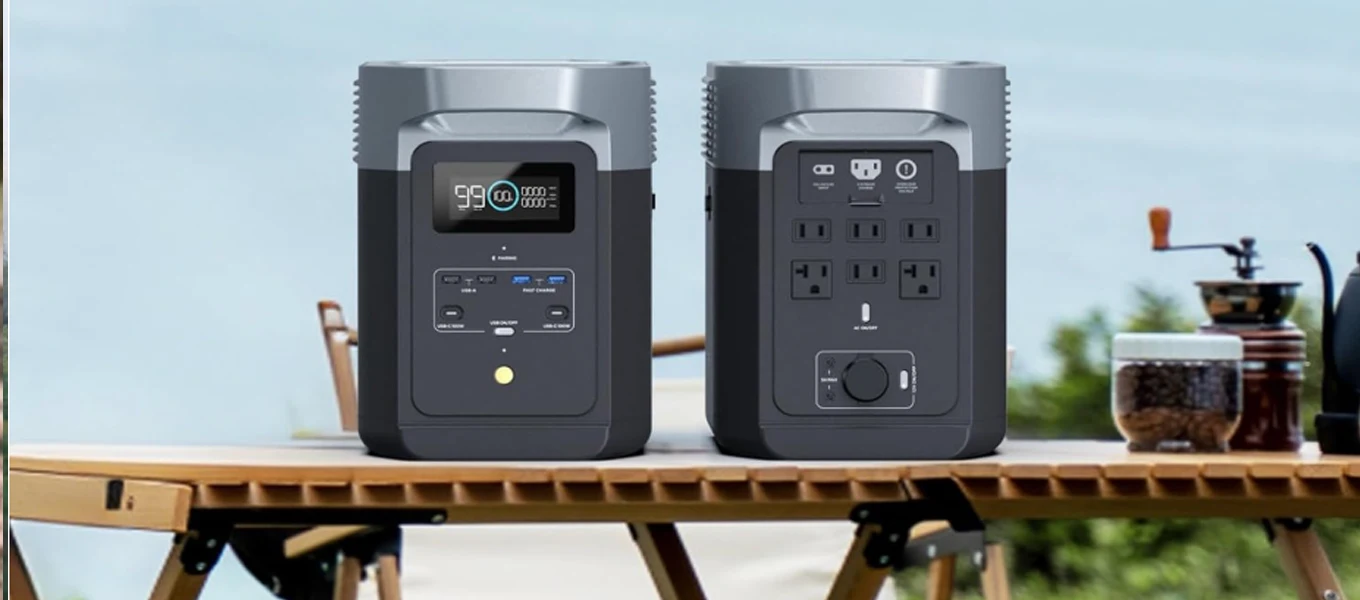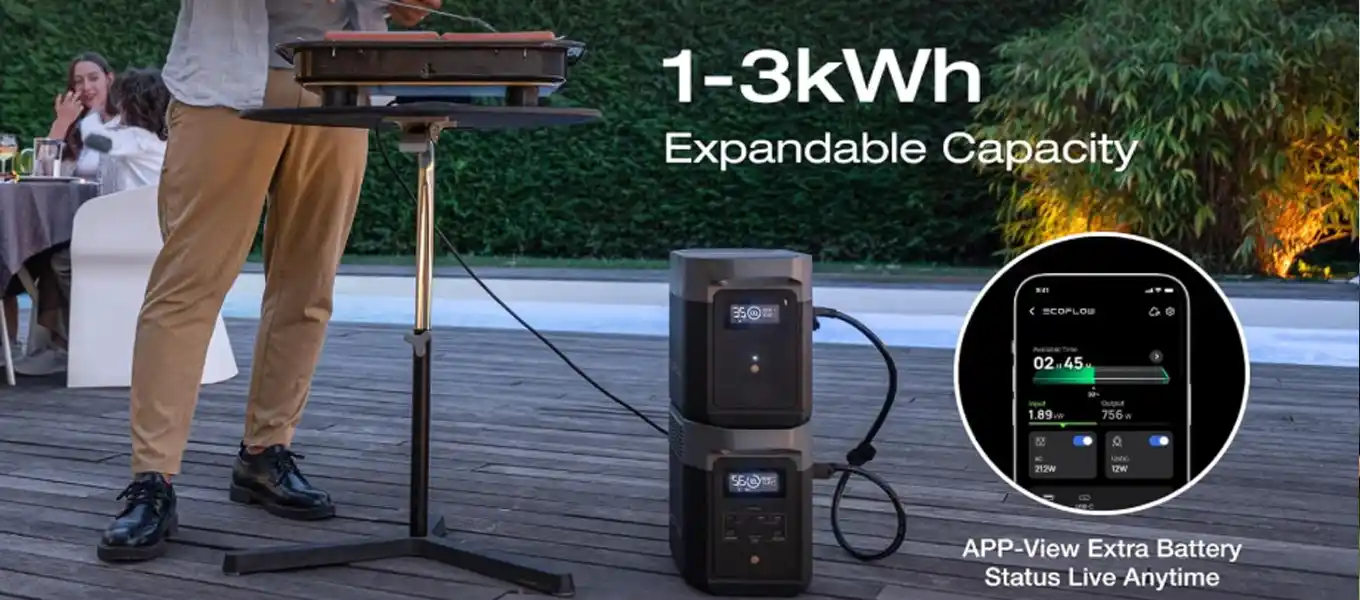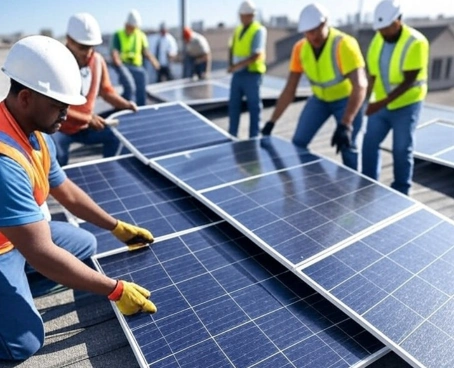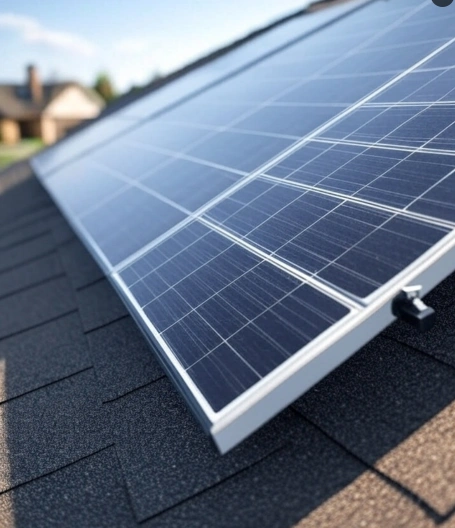
The EF ECOFLOW DELTA 2 is a versatile portable power station designed for home emergency backup, camping, and outdoor adventures. Known for its robust performance, expandable capacity, and eco-friendly battery technology, this product has gained significant attention on platforms like Amazon. It features a 1024Wh battery capacity, supports up to 1800W AC output (surging to 2200W with X-Boost technology), and utilizes the safer, longer-lasting LiFePO4 (Lithium Iron Phosphate) battery. This review provides a detailed evaluation of the DELTA 2, covering its design, performance, use cases, pros and cons, and buying recommendations, with a focus on its potential as a key component in home solar power stations or paired with a solar panel for home solar install applications.
Amazon List Price: $699
Amazon Sales Price: $414-$599
Tips:
The sales price is based on the price fluctuation range of the product on Amazon over the past year. Real-time prices may vary slightly, so please refer to the current price on Amazon. Additionally, Amazon may offer different discounts or coupons at different times, so please check the product’s sales platform or the brand's official platform for updates.
The EF ECOFLOW DELTA 2 maintains EcoFlow’s signature minimalist yet practical design. Measuring 15.7 x 8.3 x 11 inches (400 x 211 x 281 mm) and weighing approximately 27 lbs (12 kg), it’s not the lightest option, but its sturdy dual-handle design allows for easy one-handed carrying over short distances. The outer shell is made of durable hard plastic, ensuring it can withstand the rigors of outdoor use, making it a reliable choice for camping or as a backup for home solar install setups.
The device is thoughtfully laid out with various input and output ports:
Front: Features an LCD display that shows critical information like remaining battery capacity, input/output wattage, and estimated runtime.
Rear: Equipped with 6 AC outlets (total output 1800W, surge 2700W), 2 USB-C ports (100W each), 2 USB-A ports, 1 car cigarette lighter port, and 2 DC5521 ports.
Side: AC and solar charging input ports are concealed under a small cover, which helps with dust protection but feels a bit flimsy.
The design prioritizes functionality with a logical port layout, though the non-foldable handles could be improved for better space-saving. Additionally, the fan noise can be noticeable under high loads, which might be a drawback in quiet environments like a campsite or during a home emergency.

1. Battery Capacity and Output Power
The EF ECOFLOW DELTA 2 comes with a 1024Wh LiFePO4 battery, offering a balanced capacity for most home emergency or camping needs. In testing with a 270W load, the actual usable output was around 850Wh, translating to an efficiency of approximately 83.3%, which aligns with industry standards.
Cooking a Pizza: A standard electric oven cooking a pizza requires about 0.2kWh; the DELTA 2 can theoretically support over 4 pizza cooking sessions.
Brewing Coffee: A single-cup Keurig coffee maker uses around 0.03kWh per cup; the DELTA 2 can support approximately 28 cups.
The device delivers up to 1800W of AC output, and with X-Boost technology, it can surge to 2200W, capable of powering over 90% of household appliances, including microwaves, refrigerators, TVs, and even electric kettles. This makes it an excellent choice for home solar power stations during outages. However, X-Boost mode is better suited for devices with less stringent voltage requirements (like heaters), and caution is advised when powering sensitive electronics (like desktop computers).
2. Charging Speed and Options
One of the DELTA 2’s standout features is its charging speed:
AC Charging: With a 1200W AC input, it charges from 0% to 80% in just 50 minutes and reaches 100% in about 80 minutes.
Solar Charging:Supports up to 500W of solar input; when paired with a 400W solar panel or two 220W EcoFlow solar panels, it can fully charge in 3-6 hours under ideal conditions. The built-in MPPT (Maximum Power Point Tracking) algorithm ensures a charging efficiency of up to 98%, outperforming many competitors.
Car Charging: Includes a car charging cable, making it convenient for recharging during road trips.
A notable feature is the latest firmware update, which introduces a “solar priority charging” mode. When the battery drops below 20%, it automatically switches to AC charging until it reaches 70%, then reverts to solar power, making it ideal for extended outdoor use with a solar panel setup.
3. Expandability
The DELTA 2’s modular design is a significant advantage. Users can expand its capacity by connecting additional batteries:
Adding one DELTA 2 extra battery increases capacity to 2048Wh.
Connecting a DELTA Max extra battery brings the total capacity to 3040Wh.
This expandability makes it a great fit for scenarios requiring more power, such as prolonged power outages or RV camping, especially when integrated into home solar install systems. However, the extra batteries are pricey (starting at around $749), which could strain budgets.
4.Battery Life and Safety
Compared to traditional NMC (Nickel Manganese Cobalt) batteries, the DELTA 2’s LiFePO4 battery offers several benefits:
Longevity: Supports 3000 full charge-discharge cycles while retaining 80% capacity, equivalent to over 10 years of daily use.
Safety: Operates at lower temperatures, reducing the risk of overheating or thermal runaway.
Eco-Friendliness: LiFePO4 batteries have a lower environmental impact.
The device features a built-in Battery Management System (BMS) that monitors battery health in real-time, ensuring safe operation. Additionally, EcoFlow provides a 5-year warranty, which boosts user confidence in its durability.
5. Smart Control
The DELTA 2 can be remotely controlled via the EcoFlow app, which connects through 2.4GHz Wi-Fi or Bluetooth. The app offers:
Real-time monitoring of input/output power and battery status.
Remote toggling of AC/USB ports.
Adjustments to charging speed and target charge levels.
Firmware updates for performance optimization.
The app is responsive and provides accurate data, though initial pairing may require proximity to the device, and some features require the device to be manually powered on first.

Pros:
High Performance: 1800W AC output (2200W surge) powers most household appliances, with a practical 1024Wh capacity.
Fast Charging: AC charging to 80% in 50 minutes, and efficient solar charging with a solar panel.
Long Lifespan: LiFePO4 battery supports 3000 cycles, backed by a 5-year warranty.
Expandability: Capacity can be expanded up to 3040Wh with extra batteries.
Smart Control: The EcoFlow app offers robust and user-friendly features.
Cons:
Noise Issue: The fan can be loud under high loads, potentially disruptive in quiet settings.
Weight: At 27 lbs, it’s a bit heavy for frequent transport.
High Accessory Costs: Extra batteries and solar panels are expensive, increasing overall costs.
App Limitations: Some features require close proximity, and connectivity stability could be improved.
Comparison with Competitors
The EF ECOFLOW DELTA 2 stands out in its category for performance and value:
Goal Zero Yeti 1000X: Offers a similar capacity (around 1000Wh) but lower output (1500W), slower charging, and uses NMC batteries with a shorter lifespan (around 800 cycles). Priced at about $1000.
Jackery Explorer 1000: Also has a 1000Wh capacity but a lower 1000W output and slower AC charging (around 7 hours). It’s lighter (22 lbs) but has a shorter battery lifespan (500-1000 cycles). Priced at around $999.
Anker 767 (Solix F2000):Boasts a higher capacity (2048Wh) but weighs 86 lbs and costs $1999, better for users needing more power.
The DELTA 2 excels in output power, charging speed, and battery longevity, and at around $899, it offers better value, though its weight and noise are notable drawbacks.
The EF ECOFLOW DELTA 2 is ideal for:
Homeowners: Looking for a dependable backup power source for outages, especially in areas with unstable power grids, or as part of a home solar install system.
Campers: Wanting to power essentials like devices, lights, or small cooking appliances during outdoor trips, especially with a solar panel.
RV Travelers:Needing a portable and expandable power solution for on-the-road living.
If your budget is tight and you don’t need high power output, consider the lighter EcoFlow River 2 Pro (768Wh, around 17 lbs). For those needing more capacity, the EcoFlow Delta 2 Max (2048Wh, priced at around $1699) might be a better fit.
As of June 2025, the DELTA 2 is listed on Amazon for approximately $899, offering great value. Keep an eye out for promotions, as prices have dropped to as low as $450 during past sales (e.g., in 2024).
1. Home Emergency Backup
The DELTA 2 functions as an Emergency Power Supply (EPS), automatically switching to battery power during a grid outage with a transition time of about 30ms—fast enough to keep most devices running (though sensitive equipment may still require a traditional UPS). Its 1800W output can power essentials like refrigerators, TVs, and lights, while the 1024Wh capacity supports several hours of operation. Adding extra batteries makes it even more suitable for extended outages, making it a reliable component in home solar power stations.
2. Camping and Outdoor Activities
For campers, the DELTA 2 is an excellent choice. It can power smartphones, tablets, portable fridges, LED lights, and even small rice cookers. The solar charging capability, especially when paired with a solar panel, ensures continuous power in remote areas, making it ideal for off-grid adventures. However, its 27-lb weight might be cumbersome for backpackers, so it’s better suited for car camping.
3. RV Travel
RV users can benefit from the DELTA 2’s expandable capacity to meet longer-term power needs. Its car charging and solar charging options make it a dependable companion for RV life, particularly when integrated with a solar panel for sustainable power.
The EF ECOFLOW DELTA 2 is a powerful and versatile portable power station that excels with its high output, fast charging, and long-lasting LiFePO4 battery, making it an ideal choice for home emergencies, camping, and RV travel. While its 27-lb weight and fan noise under high loads are drawbacks, they don’t overshadow its overall value, especially for those integrating it into home solar power stations with a solar panel. If you’re in the market for a reliable power solution for your next adventure or as a backup for your home, the EF ECOFLOW DELTA 2 is a solid choice that won’t disappoint.





